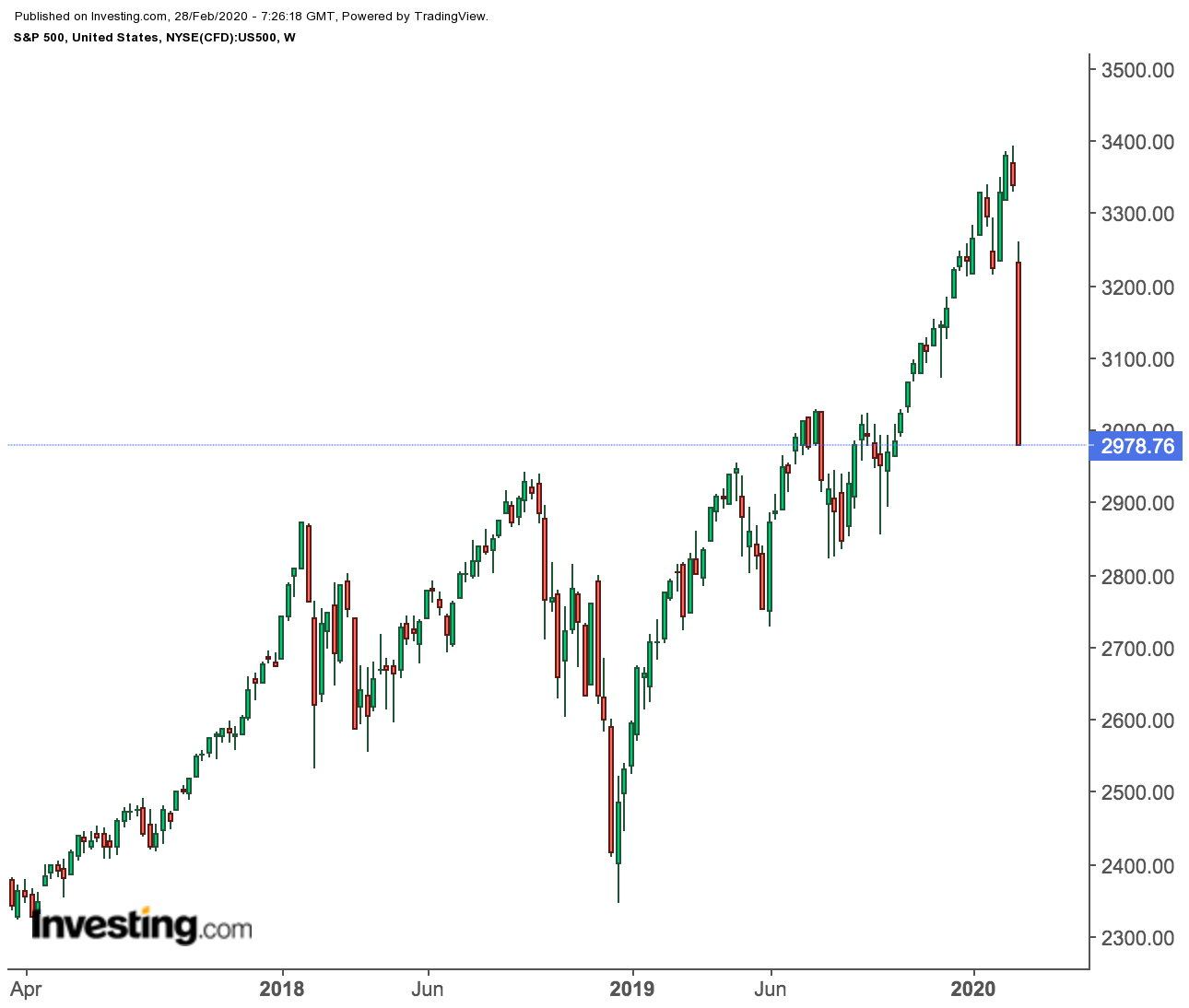Recessions and bear markets are inevitable. So is it even possible to build a retirement portfolio that is recession-proof?
There is no solution that would work for every investor. Instead, the asset allocation in a retirement portfolio depends heavily on individual needs, time horizon and risk tolerance. But by applying these criteria it is possible to at least minimize the risks during an economic recession and market downturns.
This topic is becoming relevant again as markets across the world come under pressure from the spread of the deadly coronavirus, which is hurting global supply chains, disrupting travel plans and forcing some of the world’s largest companies to cut earnings guidance.
As investors fretted about the potential economic impact from the virus, all major U.S. indexes slipped into correction territory yesterday. For the benchmark S&P 500, which fell 4.4%, it was the fastest decline into correction territory from an all-time high since at least 1980, according to Dow Jones Market Data.
There is no clarity yet on how long this disease may linger, or on how badly it could damage the global economy. But analysts are increasingly becoming convinced that the chances of a V-shaped recovery are slim.
Earnings growth for U.S. companies will be stagnant in 2020, according to Goldman Sachs which revised its earnings estimate for the year to $165 per share from $174 per share, representing 0% growth.
“U.S. companies will generate no earnings growth in 2020,” Goldman’s chief U.S. equity strategist, David Kostin, said in a note to clients Thursday. “We have updated our earnings model to incorporate the likelihood that the virus becomes widespread.”
Building a Defensive Portfolio
Increasing cash and bond holdings when recession signs are flashing is a widely recommended strategy to avoid excessive volatility in a long-term portfolio. But that doesn’t mean that you have to totally avoid stocks which, despite their wild swings, continue to be the best performing asset class over the long term.
Charles Schwab, a U.S.-based bank with $3.7 trillion funds under management, recommends owning 50% in fixed-income assets, such as bonds, 30% cash and 20% in stocks for a conservative portfolio. The up to 30% cash allocation is recommended for conservative retirees, which should allow them to cover living expenses without selling stocks while the market is depressed or recovering from a low.
For the stocks component of the portfolio, it's important to look for those corners of the stock market that are defensive and perform well in a bad economy. Investors generally find refuge in bond-type investments when risks to the economy grow. In a bid to prepare for the worst — a scenario in which a recession-fueled sell-off in equities sends the benchmark index into bear territory — smart investors have been buying utilities, real-estate investment trusts (REITs) and consumer staple stocks for the past 12 months.
Among the best-performing utilities stocks are American Water Works (NYSE:AWK), which is up 6% for the year when the S&P-500 is down about 9%; Evergy Inc (NYSE:EVRG), which serves customers in Kansas and Missouri, is another stock still in positive territory, up 2.9% since the start of 2020, despite the massive beating of this week.
These areas of the market are known to outperform during times of distress. While investors ride through the bad times, these stocks continue to provide regular returns in the shape of dividends and regular distributions.
These high-yielding stocks become more attractive as the central bank cuts rates to stave off a recession, making them appealing when you compare them with the yield on government bonds, for example.
No doubt, valuations of these safe-haven assets look quite rich after the large and consistent inflows of the past year, but the flight to safety won’t stop as long as investors are pricing in lower interest rates in their models.
Bottom Line
Higher cash and bond allocations, diversification and buying traditional safe-haven stocks, such as utilities, are some popular strategies to play defensive in the market when it’s almost impossible to avoid corrections. So, though it remains true that investors should avoid changing allocations too often in reaction to short-lived events, it is worth looking carefully at investments to ensure they're as recession-proof as possible.
